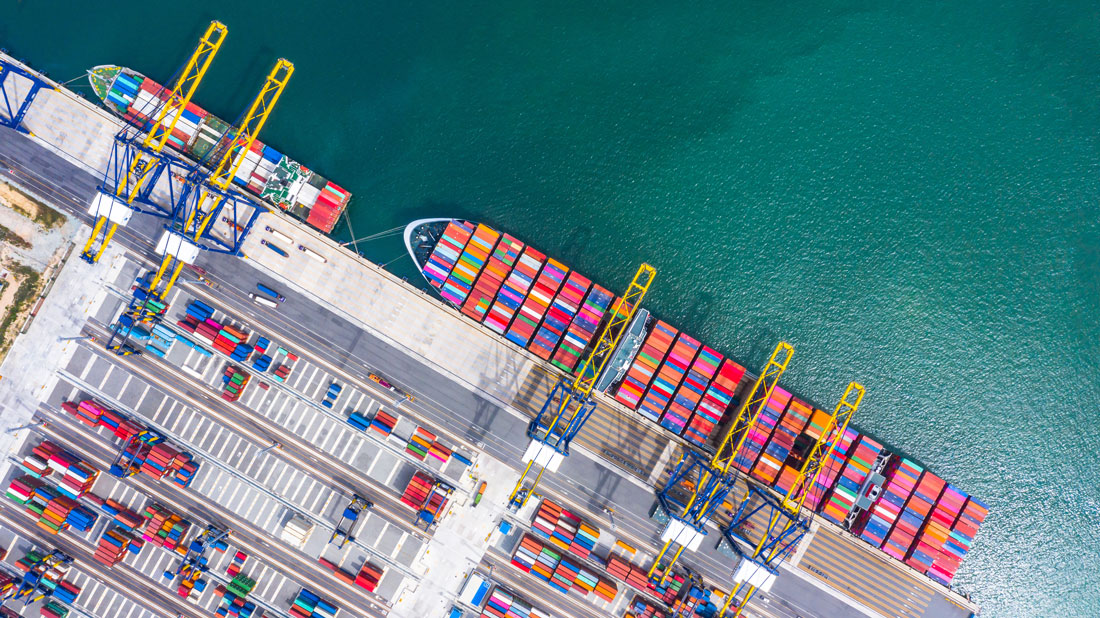Your Guide to Customs Bonds

What is a customs bond?
A Customs bond is a surety bond that connects three parties: a surety company, an importer, and the U.S. Customs & Border Protection agency. U.S. Customs requires importers bringing commercial shipments into the United States to obtain these bonds. Bonds guarantee that importers follow Customs laws and regulations and pay necessary taxes and fees associated with importing and related activities.
Who needs customs bonds?
These bonds are required for importers wishing to clear Customs with commercial goods valued at $2,500 or higher, regardless of whether the goods are duty-free.
Get a Customs Bond:
Quick Takeaways
- Customs requires these bonds of any importers wishing to clear Customs with commercial goods valued at $2,500 or higher, regardless of whether the goods are duty-free.
- There are two main types of Customs bonds: single-entry and continuous.
- Importers must pay 10% of the taxes, fees, and duties paid in the previous 12 months for continuous bonds.
How do U.S. customs bonds work?
Until you purchase your bond, Customs will hold your goods. The bond is valid at U.S. entry points and will be tied to the documents filed for importing your cargo.
U.S. Customs surety bonds are three-party legal agreements involving:
- A principal: Shipper or importer that obtains the bond
- An obligee: U.S. Customs & Border Protection (CBP) that requires the bond and releases goods to the importer
- A surety: Company that issues the bond and guarantees payment
The contract ensures the principal follows Customs rules and regulations and pays applicable fines, taxes, and penalties. If the principal breaks the agreement, the CBP may file a claim against the bond to collect payment.
Customs Bond Types
There are two main types of Customs bonds: single-entry (transactional) and continuous.
1. Single-Entry Bond
Single-entry bonds may be issued on an individual basis for single shipments through one port of entry. If you only import occasionally, this bond may be a good option for you.
2. Continuous Bond
If you frequently import goods through various ports, a continuous bond may serve you better. Continuous bonds can potentially save you time and money by speeding up processing and Customs review times. They will cover all shipments throughout a 12-month period.
Check with the CBP to determine which type of Customs bond is better for you and the amount required for your situation.
More specific Customs bond types include the following (including import bonds – the focus of this page):
- Import Bonds (most common): Activity Code 1
- Drawback Payment Refunds Bonds: Activity Code 1a
- Custodian Bonds: Activity Code 2
- International Carrier Bonds: Activity Code 3
- Instruments of International Traffic: Activity Code 3a
- FTZ (Foreign Trade Zone) Bonds: Activity Code 4
- Airport Security Bonds: Activity Code 11
- Importer Security Filing Bonds: Activity Code 16
The cost of your customs bond will depend on its value.
Single-Entry Bonds
Single-entry bonds should cover the value of your cargo plus applicable fees, taxes, and duties. If another federal agency regulates your imports, such as the Consumer Product Safety Commission, your bond must be worth three times the value of your goods.
Continuous Bonds
You must pay 10% of the taxes and duties (taxes imposed on consumers of imported goods) you paid in the previous 12 months. A continuous bond must be at least $50,000. So if the taxes and duties you paid to the CBP over the past year were equal to or less than $500,000, your bond amount would be $50,000. If you’re a new importer, you can purchase the $50,000-minimum bond.
Required bond amounts are calculated in increments of $10,000 and always rounded up. For example, if your duties, taxes, and fees the previous year totaled $820,000, you would need a $90,000 bond.
Your bond premium (the amount you pay annually) could be around 1-4% of the total bond amount. So if you need a $90,000 bond and pay 1%, the cost to you would be $9,000. Your credit score and finances can play a role in the exact rate you pay.
Continuous bonds are valid for one year then will need to be renewed. These bonds can save you time by reducing paperwork and speeding up the import process. The bond will allow you to import goods through Customs for 12 months, regardless of shipment value or frequency.

How to Get a Customs Bond in Your State
We can help you get the right customs bond for your import business. ZipBonds offers the fastest and most secure option for acquiring license and permit bonds. Our all-digital platform is intuitive and straightforward. Apply online or call us at 888.435.4191 to get help from an agent.
About ZipBonds.com
Founders Ryan Swalve and Zach Mefferd formed the vision for ZipBonds.com when they realized how overly complicated it was to help clients place surety. The frustration of being unable to incorporate the technology they’d used in other insurance-focused projects left them thinking “there has to be a better way.”
Fast forward a couple of years, and that better way is the impetus of everything we do at ZipBonds. We constantly look for innovative ways to improve the bonding process for our clients and agents. Our team comprises individuals who understand all angles of surety – for companies, agencies, and individuals. Incorporating everyone’s point of view to improve the process while simultaneously integrating cutting-edge technology is what sets our business apart.

